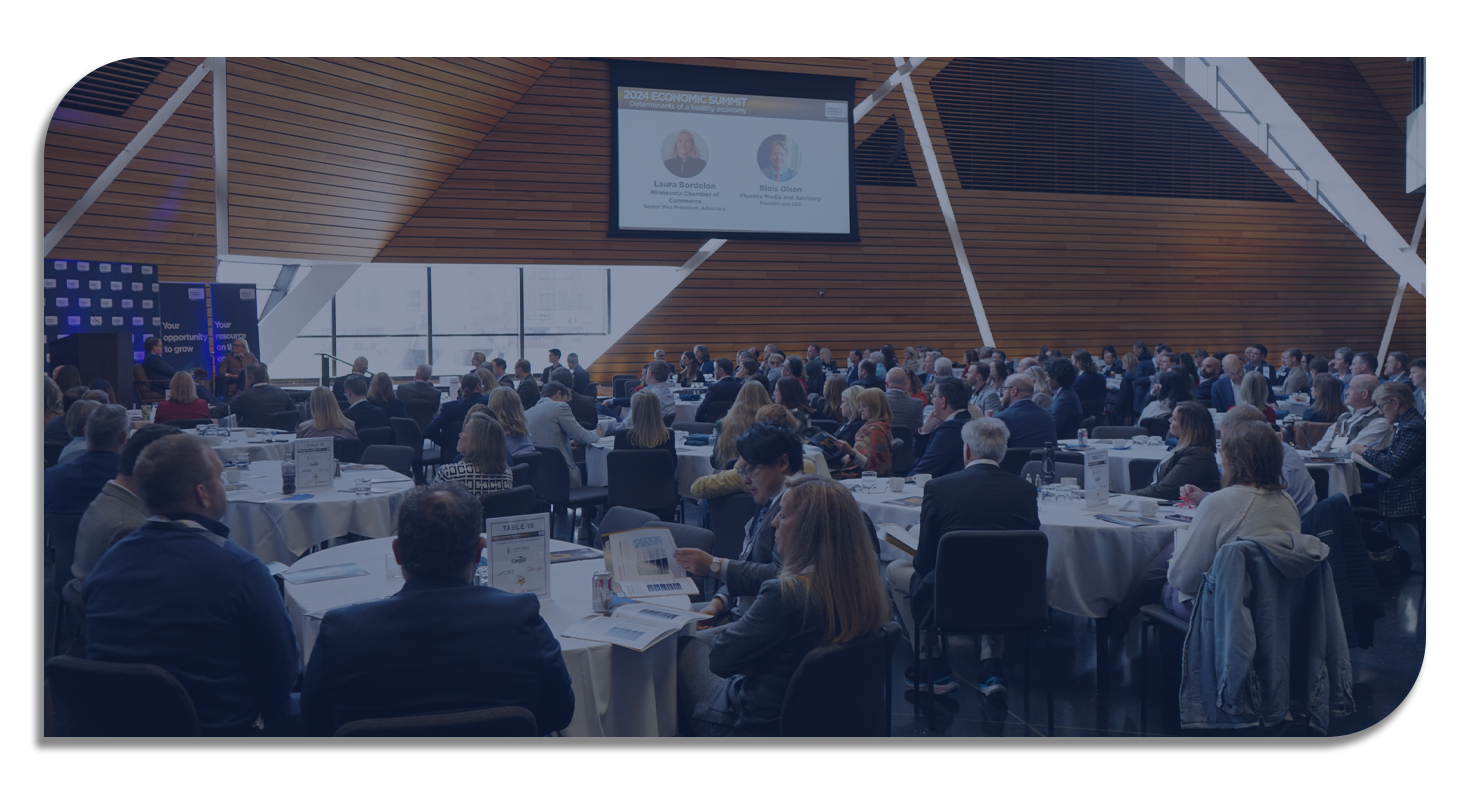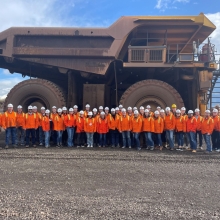What do the 2024 elections mean for Minnesota businesses?
At the 2024 Economic Summit, Blois Olson sat down with the Minnesota Chamber's Laura Bordelon to analyze the 2024 elections and what they meant for the state's business community. Below is an excerpt from their conversation.
Laura Bordelon: I've been looking forward to this conversation. We had a really seismic election. Minnesota interestingly is almost completely evenly split, so our congressional delegation evenly split between Republicans and Democrats. The Minnesota House is evenly split as well. And the state Senate has a one-vote majority, straight down the middle. What do you think the election results mean for the business community?
Blois Olson: We are a deeply divided state and we have not been historically like the rest of the country on our divisions. If you travel the state at all, you realize that, despite us trying to not, and including Governor Walz with the One Minnesota thing and the business community saying, we need the ecosystem to work between greater Minnesota and the urban area. The values are different. The feelings are different. But I think the most seismic thing is trust. The lack of institutional trust, depending on where your values are or what value you believe you're getting out of these institutions, I think is the undercurrent.
I think the undercurrent isn't just about personalities at the top of the ticket. It's what is St. Paul doing to us in Greater Minnesota and then in the cities…The bubble is real. The amount of people who live in this bubble of the Twin Cities and do not understand the rest of the state is a challenge. But for the business community, the issues are the same. Child care, workforce, education, GDP growth. I got an advanced look at the Benchmarks last night, and read it, we have a lot of work to do to bring back real exceptionalism in Minnesota.
LB: Do you think that the economic issues are different in greater Minnesota than in the metro area? Are businesses operating or feeling different there than in the metro?
BO: If you look at the data, Greater Minnesota is as dependent on government programs, Medicaid, things like that, as the metro. But their view of those institutions is very different. I don't think they're different. I think the feeling about them is different and the belief in how to solve them is different. I tell this story, and this is more national than it is Minnesota, but in 2016, my now 21-year-old son came home from school and then he said, ‘Who lives on Wall Street?’ And I said, ‘Why do you ask?’ And he said, ‘Because Bernie Sanders says Wall Street's going to pay for everything, and I want to know.’ And I looked at him and he was like, 15. I just said, ‘According to Bernie Sanders, we live on Wall Street.’ And he's like, oh. I think it's where do the resources come from? How do you solve them? That is the big split between urban and rural.

LB: Tell us about what you think were the top issues of the election cycle and how were they communicated to voters?
BO: I think Democrats totally missed the boat on what people were really feeling about what the real issues were. Just because something polls well in modern times does not mean that somebody's going to vote on that. And this election showed that. Obviously on a woman's right to choose, Democrats really put a lot into that, and that's a compelling urgent issue. But if you look at, especially younger voters, young women voted for Harris seven points less than they voted for Biden. It wasn't compelling to them. And what moves people, that's what politics is about. How do you move a demographic? It was clearly an economic election. Trump had the economy. He had the top three issues the whole time. No matter what Democrats tried to throw at it, they were never going to supplant those top three issues.
I also think that what we learned was we have these images of flags and lawn signs and all these things. Most of America doesn't put out a lawn sign or wave a flag. They just go into the voting booth and they vote their way. And that happened in a big way…We think of MAGA as loud, but there was a quiet, we need change, and we need a different economic approach.
LB: Since we're on the U of M campus, we need to talk about young voters. What did you see young voters behave in this most recent election cycle?
BO: This is probably one of the biggest storylines that I'm fascinated by. I have a 19-year-old and a 21-year-old. I have a focus group every day. I went back last week and I have data. In 1992 was the first election that Gen X was majority voting age. Ross Perot was a factor. But Bill Clinton, Clinton still beat George Bush by 12 points amongst that group. In 2008. When Barack Obama beat John McCain, Millennials were majority voting age. And Barack Obama beat John McCain by over 24 points.
Kamala Harris in the first election, Gen Z was majority voting age. Kamala Harris beat Donald Trump by two points, and she lost young men, 18 to 29. She lost seven points there. Joe Biden won young men, 56-44. Kamala Harris lost young men, 56-44.
Since January of 2021, Gallup has tracked quarterly Gen Z's views on politics. They are more moderate than either of the two generations. I think the pandemic had a lot to do with that. I think the economics there. But you can see in the first quarter of 2021, like January, 2021 to April of 2021, Gen Z lost 20 points in the, ‘am I liberal or am I moderate?’ And they all went moderate. You think of culture, you think of diversity, you think of challenges in life and the economy and what they see their parents go through and the social media, they see a totally different future than we can see for them. If you're not on TikTok, you will see that they see this world through a totally different lens.
I do an exercise every night where I watch TikToks for 15 or 20 minutes. If I see something from some young influencer, I watch it. And then the algorithm shows me more of what my kids are seeing. It's a totally different view. It's not CNN, it's not Fox, it's not a podcast. They listen to those, they watch those, too. But it's totally different.
The last pop culture thing I'll throw in, when I grew up in suburban Shoreview, Minnesota country music wasn't anywhere near my world. And country music is leading. And it tells stories. They are soaking up those stories about what their life should look like. And it is not what Democrats presented.
Recommended Articles
The Minnesota Chamber of Commerce released this letter on behalf of more than 60 CEOs of Minnesota-based companies today.
The...



